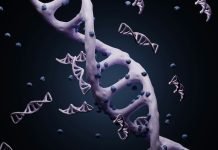
Obesity means having too much body fat. It’s like overloading a car. Too much weight can cause the car to break down.
In the same way, obesity can lead to health problems, like heart disease, diabetes, and even cancer.
Obesity and Cancer: What’s the Connection?
We know that being overweight can make a person more likely to get cancer.
But guess what? It seems that where the fat is in the body and whether the person is a man or woman can make a difference too. And the type of cancer is also important.
The scientists who discovered this wanted to understand how body fat affects cancer risks better. Mathias Rask-Andersen and Åsa Johansson, two researchers from Uppsala University in Sweden, led this study.
They knew that fat stored in the belly can cause more health problems than fat stored under the skin.
They also knew that men and women store fat differently and that different types of cancer are more common in one gender than the other.
The Study: How Did They Do It?
The researchers looked at health data from the UK Biobank. This data bank is a huge collection of health information from 500,000 people in the UK, aged between 37 and 73.
The researchers checked where these people had fat in their bodies and whether they got cancer.
The Findings: Fat, Gender, and Cancer
Their findings were quite surprising. They found that almost all types of cancer were linked to obesity. But the links were different for men and women, and for different types of cancer.
For women, too much overall body fat increased the risk of getting gallbladder cancer, endometrial cancer (a type of uterus cancer), and a type of esophagus cancer.
For men, too much body fat was linked to breast cancer (yes, men can get it too!), liver cancer, and a type of kidney cancer.
They also found that where the fat was stored in the body could affect the risk of colorectal, esophageal, and liver cancer differently in men and women.
Post- and Pre-Menopausal Women: A Difference
The researchers also found something unexpected. Obesity affected cancer risk differently in women depending on whether they had gone through menopause.
Menopause is a time in a woman’s life when she stops having periods and can’t get pregnant anymore. It usually happens when a woman is in her late 40s or early 50s.
After menopause, obesity increased the risk of breast cancer. But this was not the case before menopause.
Limitations and Future Research
This study was not perfect. Most of the people in the UK Biobank are white, so the findings might not be the same for people of other races.
Also, the people were mostly older, so the findings might not be the same for younger people.
The researchers want to do more studies to understand these findings better. They also want to study how things like genes and the environment affect cancer risk.
The Takeaway: It’s Complicated
Obesity is a growing problem worldwide. It’s becoming a major risk factor for cancer. So, it’s important to stay at a healthy weight. But, losing weight does not mean you won’t get cancer.
There are many other risk factors, like smoking for lung cancer and sun exposure for skin cancer. Understanding cancer is complex, but every bit of new information helps us get one step closer to beating this disease.
If you care about weight loss, please read studies about popular weight loss diets linked to heart disease and cancer, and this exercise has unique benefits for weight loss.
For more information about health, please see recent studies about how drinking milk affects the risks of heart disease and cancer and results showing Keto diet may improve blood sugar in cancer patients.
The study was published in Cancer Cell.
Copyright © 2023 Knowridge Science Report. All rights reserved.




